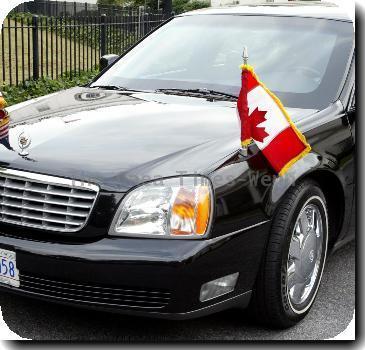Haitians in US illegally hope earthquake will finally get them temporary legal status
By Laura Wides-munoz, APFriday, January 15, 2010
Haitians in US hope crisis leads to legal status
MIAMI — Haitians in the U.S. illegally have for years pleaded for the same treatment the federal government gave Central Americans in 1998 after Hurricane Mitch devastated their region: temporary legal status that would allow them to stay, work and send money home to their loved ones in need.
But they have been denied, despite four tropical storms in 2008, massive floods almost every other year since 2000 and the long-running political strife that has prompted thousands to seek asylum in the U.S.
Thousands of Haitians immigrants in the U.S. are hoping Tuesday’s catastrophic earthquake will at last push Washington to honor their request. Several lawmakers support the request, including South Florida’s three Republican, Cuban-Americans in Congress, the Democrat who represents Miami’s Little Haiti and representatives and senators from Florida, New York and Los Angeles.
Homeland Security Secretary Janet Napolitano temporarily halted deportations of Haitians Wednesday but advocates want a longer-term solution.
About 30,000 Haitians have orders to leave the U.S., according to Department of Homeland Security statistics. Many others are appealing their cases. Thousands of others live underground.
Among those hoping for the relief is Yvrose, a soft-spoken mother of two who declined to give her last name for fear of hurting her case.
Yvrose fled Haiti in 2003 after men searching for her husband — a member of a political opposition party — beat her so badly she ended up unconscious in the hospital.
She says family members spirited her by boat to the U.S., where she applied for political asylum. The request was denied and a temporary work permit was canceled last year, but an appellate board has ordered her case reheard. Now, like thousands of other Haitians, she remains in limbo — she can stay for now due to Napolitano’s order, but she can’t work or get a driver’s license.
Yvrose, 31, said the current halt to deportations means little if she can’t get a job to help her family rebuild their home in Port-au-Prince. Her father, who supported the family as best he could in Haiti with sporadic work as a tailor, is unlikely to find jobs any time soon — if he is still alive, she said.
“I need so much to work for my family in Haiti and to put food on the table for my kids here,” she said through an interpreter Thursday, her voice heavy with exhaustion.
Federal law permits Homeland Security to grant immigrants temporary protected status or TPS in the event of a natural disaster or civil war. Since the earthquake struck, the department has said only that TPS is an option.
Those who favor a stricter U.S. immigration policy have in the past vehemently opposed giving temporary protected status because they argued it is a backdoor to granting amnesty. TPS given to Salvadorans, Nicaraguans and Hondurans following Mitch was repeatedly extended for more than a decade, presumably long after those countries were able to rebuild. About 350,000 Central Americans have the designation as do about 950 Somalis and Sudanese in the U.S. since 2001 and 2004.
“TPS was invented for this kind of situation, but it has been turned into something much more permanent” said Mark Krikorian, of the Center for Immigration Studies. “And while we probably should grant TPS to Haitians who were here before the earthquake, we really need to make sure it’s temporary.”
U.S. Rep. Lincoln Diaz-Balart, R-Miami, is among South Florida congressional members who have long pressed for TPS for Haitians. He and others called on President Barack Obama to grant the status immediately following the quake.
Diaz-Balart was instrumental in pushing for TPS following Mitch. Yet he and others like South Florida Democratic U.S. Rep. Kendrick Meek have been repeatedly rebuffed when it comes to the Haitians.
“This is an unfathomable tragedy,” Diaz-Balart said. “It begs the question: ‘How much does Haiti have to suffer before Haitians in the U.S. are granted TPS?’”
Tags: Barack Obama, Caribbean, Florida, Haiti, Latin America And Caribbean, Miami, National Security, North America, United States

